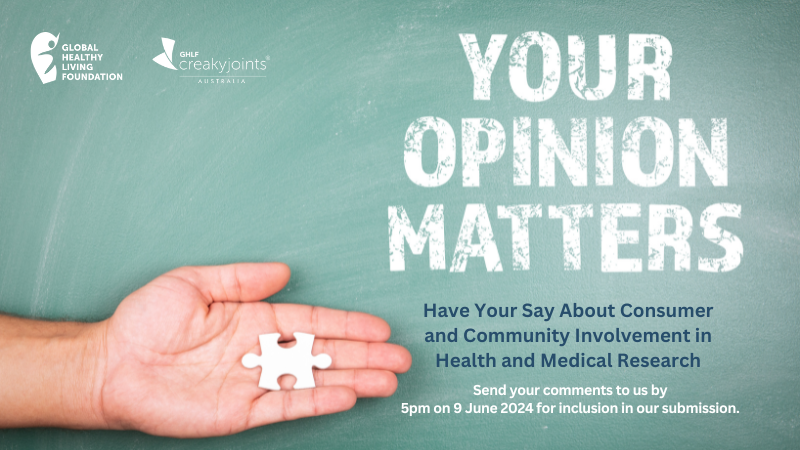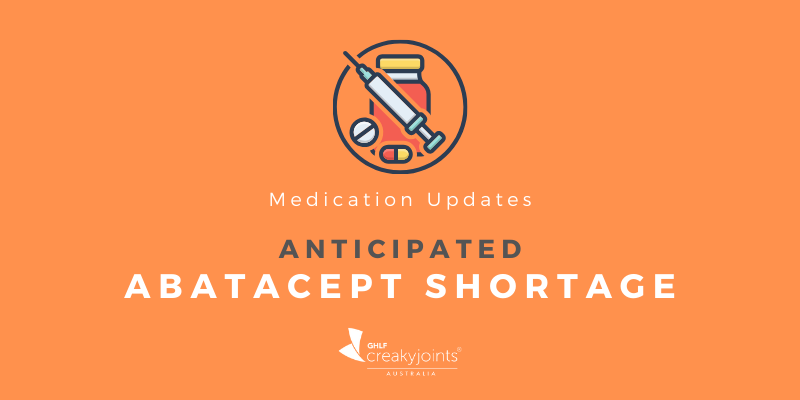

As people with arthritis ourselves, we at CreakyJoints Australia have been closely following social media posts about medication use and access during the COVID-19 pandemic. Two big issues that many of you have been worried about are the supply issues with hydroxychloroquine (Plaquenil®) and whether having biologic infusions in a hospital setting increases your risk of exposure to COVID-19.
We asked leading Melbourne rheumatologist, Professor Stephen Hall to address your common concerns. He kindly obliged and his responses have informed the answers below.
1. Why is There a Supply Shortage of Plaquenil?
Plaquenil is widely used for the treatment of rheumatoid arthritis and systemic lupus erythematosus.
As COVID-19 is a new form of coronavirus, when it first appeared in China, some doctors there tried a range of medications to treat the viral and deadly infection. However, due to the urgency of the situation, there were no well-conducted controlled trials to allow an appropriate assessment as to whether this treatment was useful for the virus or not.
Soon after, the fear generated by the virus news led to some people, including the President of the United States, recommending Plaquenil in the belief that taking it would prevent people getting the virus, or if they had the virus and they were unwell, that taking it would make them better faster. This recommendation goes against all the current advice of the world’s leading health scientists and advisors as it is simply too soon to tell which medications will prevent or cure COVID-19.
This situation led to a sudden and unexpected global rush to obtain Plaquenil by people who did not otherwise need it, creating a supply shortage. The problem was compounded by many health professionals with a prescription pad (including dentists) prescribing the drug to those around them as an irrational precaution.
Since then, the Australian Federal Government has stepped in and placed new restrictions on who can initiate therapy with Plaquenil. Only certain types of specialist physicians (such as rheumatologists) can now prescribe it to new patients. General practitioners and certain other medical practitioners can continue to prescribe repeat prescriptions of Plaquenil to patients.
(Editor’s note: On 1 May 2020, hydroxychloroquine became an initial or continuing Authority Required (STREAMLINED) listing on the PBS for the treatment of malaria or autoimmune diseases. Pharmacists will therefore be required to ensure any relevant dispensed scripts have a valid streamlined authority code, which needs to be valid at the date of prescribing.)
2. When Should Plaquenil Supplies Return to Normal in Australia?
CreakyJoints Australia understands that the limited supply of Plaquenil was initially caused by a reduction of stockpiles in the distribution chain rather than inadequate quantities being manufactured. However, manufacturing has now increased due to Plaquenil being one of the many potential COVID-19 treatments being trialled around the world.
Professor Hall assured us, “There are adequate supplies for Australians who have been prescribed Plaquenil and that these will be coming into the pharmacies over the next few weeks.”
3. What Happens if I Miss my Dose of Plaquenil?
Understandably, many people who have been prescribed Plaquenil for lupus or rheumatoid arthritis are concerned that if they do not have Plaquenil on a daily basis, they will get sick very quickly.
Professor Hall explained that different drugs hang around the body for different periods of time. We measure how quickly drugs are eliminated from the body by what is known as the half-life of the drug, which is the time it takes for the levels in the blood to drop by 50 per cent when a person stops taking their medication.
Most drugs have a half-life of between three and eight hours. Since it takes five half-lives to eliminate a drug from our body, stopping most drugs means that within a day or two there is no drug left in the body. Plaquenil has a half-life of six weeks which means it takes six months for the drug to be eliminated from our bodies. “Consequently, going without the Plaquenil for a few weeks is not going to put anybody’s health at risk”, Professor Hall said.
“I would not recommend looking for an alternative drug to prescribe in the meantime since there is usually no need for this. Similarly, unless a person’s symptoms were becoming much worse, I would not increase the dose of any other drugs they might be taking such as methotrexate or prednisolone.”
4. Is it Safe to Go to Hospital For Infusions or Tests?
“At this time, people are understandably anxious about presenting themselves to a hospital for infusions, blood tests, X-rays or other imaging studies for fear that they might catch COVID-19. Generally, hospitals are places where the most scrupulous precautions are taken and, unless one is walking into a hospital ward involved in treating COVID patients, going to have the infusions would be a very safe proposition”, Professor Hall said.
“For most people receiving treatments, going and having the infusions is better for their general health than avoiding having the infusions in a hospital setting driven by (an unfounded) fear of infection.”
5. Should I Stop Taking My Arthritis Medications Due to COVID-19?
The Australian Rheumatology Association released a statement in early April about the use of arthritis medications during the COVID-19 pandemic. The statement strongly recommended that people NOT stop their medications. “There is no evidence to suggest that WELL patients, without fever or signs of infection, should change or stop any of their regular prescribed medications.”
Professor Hall added, “For most people taking treatments such as biological therapies, it is much safer to continue on the treatment than it is to stop it. It always remains true that if a person has an active severe infection with high fevers, then it is important to discuss with their treating doctors which medications should be withheld until the infection has been controlled and gone away.”
Rheumatologists around the world are gathering data about how best to treat people with rheumatic disease during COVID-19. Click here to learn how you can help them.




